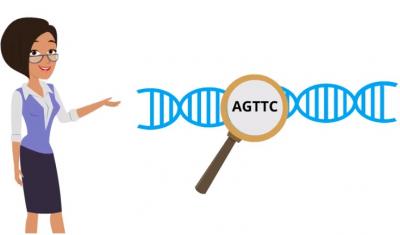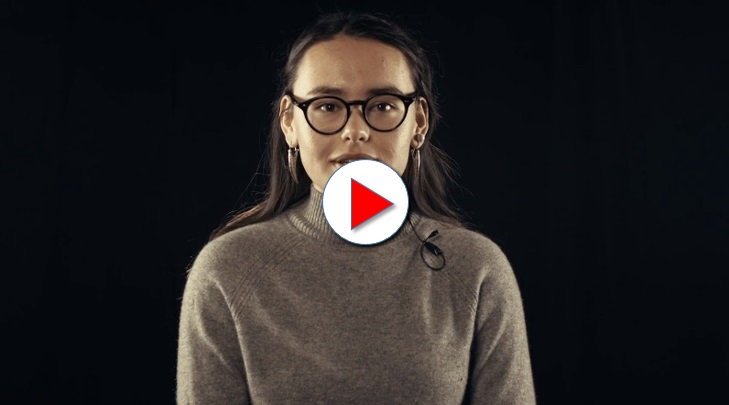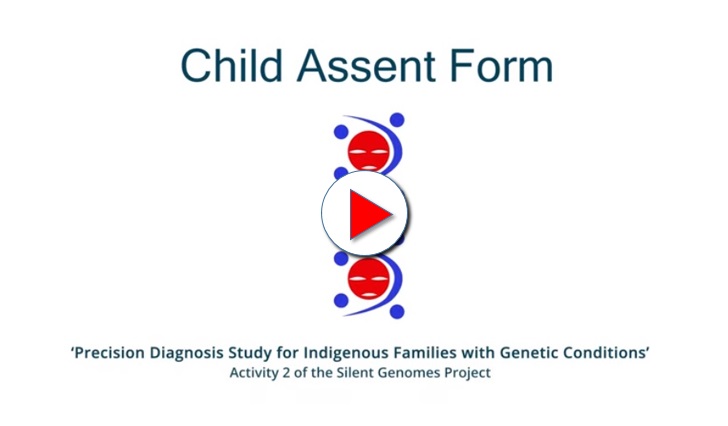Precision Diagnosis for Indigenous Families with Genetic Conditions ('Precision Diagnosis Study')
Overview
For an overview of the study, please visit the Overview page.
Patient Q&A
Click on the questions below for the answer to each question.
A tip! To see a description of a term
please place your mouse icon over it

- Q: What is the purpose of this study?
-
A: The goal of this study is to increase access to genetic technologies and diagnosis for Indigenous (First Nations, Métis and Inuit) families in Canada with suspected genetic conditions. For each family joining the study, we will offer specialized genetic testing to try to find the cause of the suspected genetic condition in their family, where the condition has not been diagnosed by regular tests available through the medical system.
- Q: Who can join this study?
-
A: This study is only for families who self-identify as Indigenous (First Nations, Inuit or Métis). Your family may be eligible to join the study if:
- Someone in your family has a serious health condition where symptoms can appear in childhood
- The health condition in your family is suspected to be genetic
- The cause of the condition has not been found by regular tests done by your doctors
- Q: What kind of genetic testing will be offered to my family if we join this study?
-
A: You/your child will be offered a state-of-the-art genetic test called 'whole genome sequencing'. This test can look at all the genetic material (DNA) in our body at once, including all our genes. By taking a detailed look at all the DNA, we can potentially find changes in the DNA (DNA variants) that might be related to the health condition in your family. Whole genome sequencing is a newer, more advanced genetic test than most tests that are offered through the regular medical system. A sample of DNA is needed to carry out whole genome sequencing, which is usually collected through a blood sample.
- Q: What are the steps to joining the study?
-
A: To join the study, you must be referred by a healthcare provider, such as a doctor who specializes in genetics, a pediatrician, or other specialist. After your healthcare provider refers you to the study, the study team will review your case to see if you are eligible to join the study and if the study is right for your family. It is important that whole genome sequencing only be offered to those who it is appropriate for; therefore, simply being referred to the study does not guarantee study participation. After reviewing your case, the study team will get back to you and your referring healthcare provider to confirm if you are eligible to join the study or not.
- Q: If my doctor refers my family to the study and we are eligible to join, what happens next?
-
A: If your family is still interested, you will meet with a member of the study team (usually the study genetic counsellor) who will go through the steps of the study and possible benefits and harms of the study with you and your family in detail, and answer any of your questions. To officially join the study, you must give consent and sign a consent form (you can view the consent forms in the documents section under the tab for your specific Province). After consenting to the study, a sample of DNA for whole genome sequencing will need to be collected. This is usually done through a blood sample. Generally, unaffected family members (blood relatives) will also be invited to undergo whole genome sequencing. This will provide a genetic comparison which will greatly help the study team interpret the affected individual’s results.
- Q: If I am invited to join the study, do I have to join?
-
No. Study participation is voluntary. You do not have to join if you do not want to. Each person who is eligible to join the study is free to make their own decision about whether they wish to join the study or not. You can also withdraw your participation AFTER you sign the consent form if you wish. If you decide to leave the study, this WILL NOT impact your family’s medical care in any way.
- Q: If I join the study, what will happen to my DNA sample?
-
A: DNA samples will be stored at the BC Genome Sciences Centre in Vancouver for the duration of the study and will normally be destroyed after the study is complete and the results of the study have been published, unless a participant requests their sample to be sent back to them or to another study. We strictly adhere to the policy of "DNA on loan." This means that we consider research participants to be the owners of their DNA and other biological samples, and they are ‘on loan’ for the purpose of this research. If a participant wishes their samples to be destroyed or sent back to them at any time, we will do that and send written confirmation to the participant that this has been done. If a participant requests withdrawal of their samples and/or data from the study, we will respect their decision to the greatest extent possible. Any samples and/or data not yet included in analysis will be destroyed and no new analysis will be done using his/her samples or data.
- Q: What is the chance that this study will find an answer for my family?
-
A: We do not know if whole genome sequencing will find the reason for the health condition in your family. We estimate that it will find the answer (i.e. diagnose the health condition in your family) about 30% of the time.
- Q: How long will it take to get results?
-
A: It is difficult to know how long it will take for results of the whole genome sequencing test to come back. From the time of sample collection, we estimate that it will take approximately 6 months to get a result.
- Q: Who will my information be shared with if I join this study?
-
A: Only the Precision Diagnosis study team will see your family’s information. If whole genome sequencing does find a DNA variant that may be the reason for the condition in your family, this genetic test result will go back to the doctor who referred you and it will become part of your and/or your child’s medical record.
- Q: What are the possible benefits of participating in this study?
-
A: Finding the genetic reason for the condition in your family may:
– Allow access to certain resources that may not have been available to your family before.
– Lead to better informed health care and information about potential outcomes for people in your family who have the health condition (i.e., if your family’s condition is diagnosed through this study, this may lead to new options for screening and prevention of related health problems, and better information about how the disease may progress).
– Help your family understand the condition better, which in turn may help you work through the emotions to adjust to the health condition, and/or help you explain the condition to other family members, friends, educators and health care providers.
– Provide information about the chance of this condition happening again in the family.
– Help benefit others with suspected genetic conditions.
- Q: What are the possible harms of participating in this study?
-
A: There may be:
– Potential psychological impacts. Diagnosing a new genetic condition in the family may have certain psychological impacts on family members. It may change life planning and decisions, and some individuals may prefer not to have this medical information.
– Some genetic conditions discovered through whole genome sequencing are inherited, and are present in other blood relatives as well. Therefore, genetic information can potentially impact the wider family, not just the individuals participating in the study.
– Potential risk of revealing your genetic information. We follow very high standards for protection of your health information, but despite our best efforts to protect your privacy, complete anonymity cannot be guaranteed.
– Potential risk of genetic discrimination; however, there is a law currently in place (The Genetic Non-Discrimination Act [GNA]), which makes it illegal for insurers (such as life insurance companies) and employers to ask you to reveal your genetic test results.
– Potential discomfort of blood draw. If blood draw is a barrier to participating in this study, there may be other options for collecting a DNA sample. - Q: How do I know that the study team will have my family’s best interest in mind?
-
A: Our study team has extensive experience partnering with Indigenous communities for both research and clinical genetics care. We will work in partnership with each family to understand and respect their values, wishes, and preferences related to genetic testing and study participation. We will respect each family’s decision about whether or not to join the study, and will strive to provide all the information and support needed for families to make informed decisions on their own terms throughout the course of the study. Cultural safety is fundamental for this study, and all study team members enrolling participants have received training with emphasis on Indigenous cultural safety.
Talking Consent/Assent Videos
These videos are the study consent and assent materials in video form. Families who have been invited to join the study may find it helpful to view these videos, while following along on the written forms provided by the study team. We hope that hearing the words spoken aloud will help families understand the study more deeply. Please note that these videos may not be identical to the consent/assent forms in your province, but similar forms are used at all study sites across the country. Ask your health care provider for details!
Adult and Parent/GuardianTalking Consent Video Series (split into 5 videos)
Credits: Reading by Brittany Morgan and Laurie Montour; animation by Lena Chen and Brittany Morgan
Video 1: Introduction and Background; Page 1 - 4

Click here to view ![]() Video 1: Introduction and Background; Page 1 - 4
Video 1: Introduction and Background; Page 1 - 4
Click here to view ![]() Video 2: Study Process; page 4 - 6
Video 2: Study Process; page 4 - 6
Click here to view ![]() Video 3: Study Process; page 6 -10
Video 3: Study Process; page 6 -10
Click here to view ![]() Video 4: Study Process: page 10 - 13
Video 4: Study Process: page 10 - 13
Click here to view ![]() Video 5: Participant Consent; Page 14 - 16
Video 5: Participant Consent; Page 14 - 16
Adolescent Talking Assent Video
Credits: Reading by Sila Rogan; filmed by Educational Technology at UBC Faculty of Medicine (Producers: Zachary Rothman and Stephen Gillis)
Child Talking Assent Video
Credits: Reading by Aliah; filmed and produced by 6ixSigma
Documents
Click on the province/territory below for the documents related to your region.
- British Columbia/Yukon
-
- Study Information Pamphlet: This study pamphlet provides a brief summary of the study and the genetic test we offering through the study (whole genome sequencing). Being in “pamphlet” format, this document is meant to be printed double-sided and tri-folded.
- Release of Information Form: This form gives the study team permission to look at your or your child’s medical records. Before being enrolled in the study, families must sign and return this form so that the study team can confirm their eligibility.
- Written Consent/Assent Forms: (adult consent, adolescent assent and child assent forms.) The consent and assent forms explain the study in detail. Signing these forms means you agree to participate in the study. The study team will discuss these forms with you in detail as part of the consent process. Before signing these forms, you are required to review them with a member of the study team. Please see the Talking Consent/Assent Videos if you also wish to view the forms in video format.
- Alberta (Calgary)
-
- Study Information Pamphlet: This study pamphlet provides a brief summary of the study and the genetic test we offering through the study (whole genome sequencing). Being in “pamphlet” format, this document is meant to be printed double-sided and tri-folded.
- Written Consent/Assent Forms: (adult consent, parent of child consent, adult without capacity consent, adolescent assent and child assent forms.) The consent and assent forms explain the study in detail. Signing these forms means you agree to participate in the study. The study team will discuss these forms with you in detail as part of the consent process. Before signing these forms, you are required to review them with a member of the study team.
Definitions
DNA: DNA stands for "deoxyribonucleic acid." It is the genetic material in all of our cells, which we inherited from our parents. DNA is made of a long string of genetic 'letters' that our bodies can read.
DNA Variant: A spelling change in DNA (e.g. when a genetic letter is changed, added, or deleted) is
called a ‘variant’. Each person carries millions of DNA variants. Most variants are harmless, but some cause a gene to be misread by our bodies and may lead to health problems.
Gene: A Gene is a section of DNA that gives a specific instruction that tells our body how to function. For example, certain genes code for eye colour, while other genes tell our kidneys or heart how to work. Each person has about 25,000 different genes. Genes come in pairs, as we inherit one set of genes from our father and the other set from our mother.
Genetic Condition: A health condition that is caused by change(s) in a person’s DNA (DNA variants). Some genetic conditions are passed down from our parents, while others happen for the first time in an individual (due to a new gene variant).
Genome: The whole package of all the DNA in a person is called their genome. The genome is like the book of all the DNA letters in a person.
Whole Genome Sequencing: A genetic test that can take a detailed look at all the DNA in the body at once (the entire genome), in an attempt to find DNA variants that might be the cause of a health condition.
For more educational resources about genetics and genetic testing please see the Education tab

